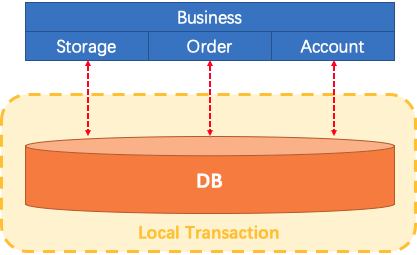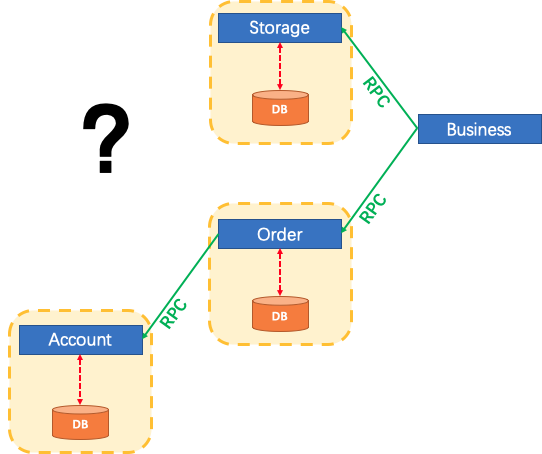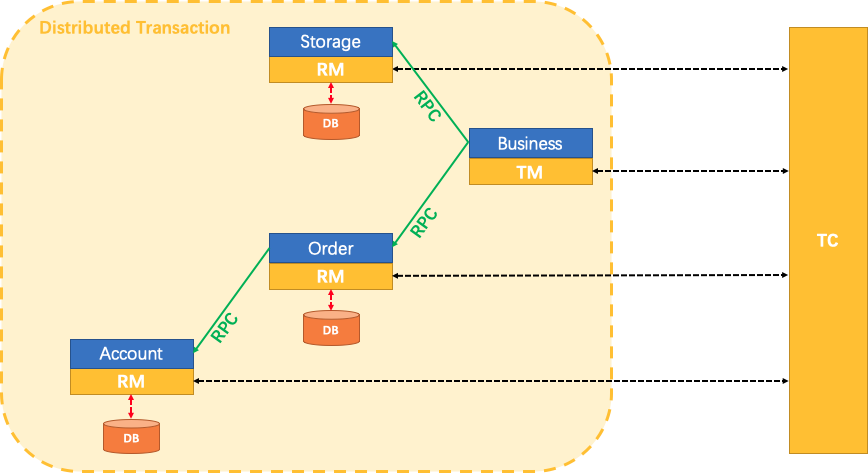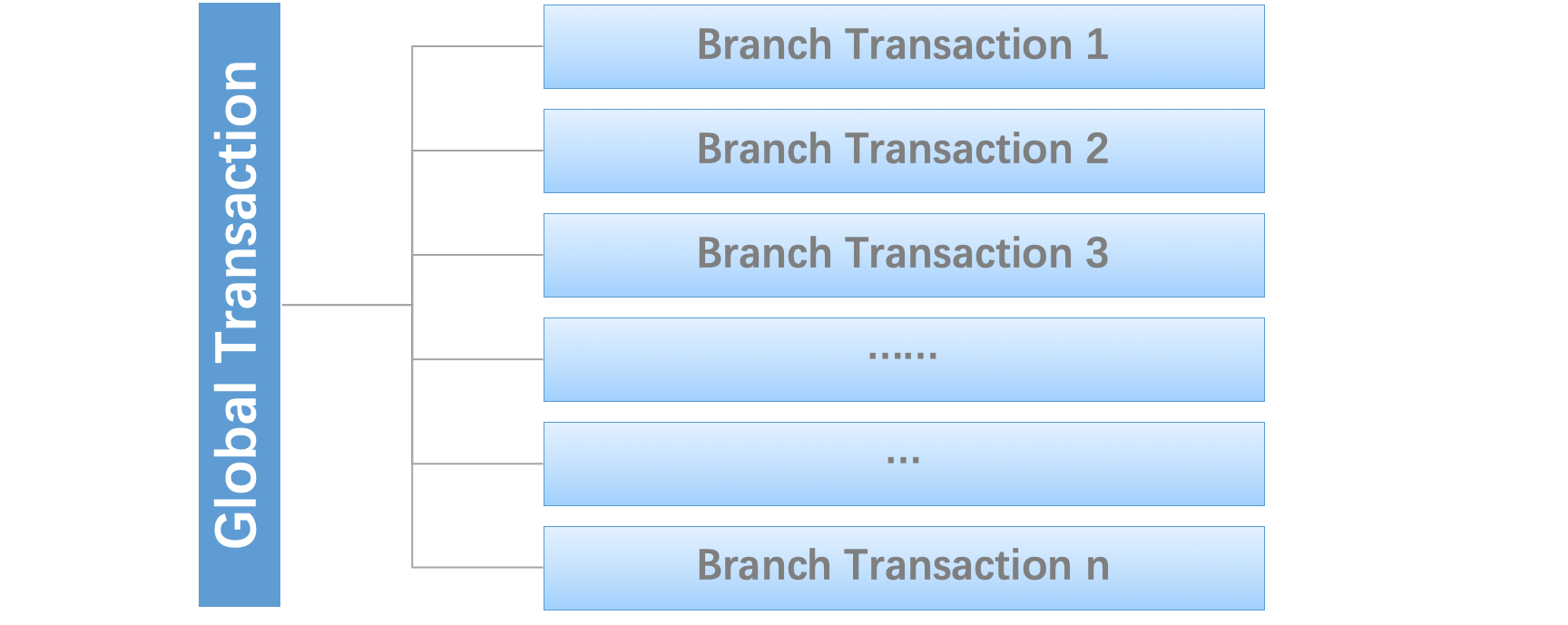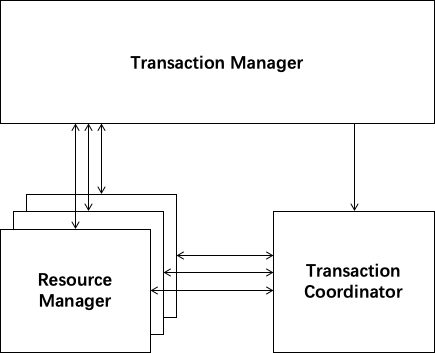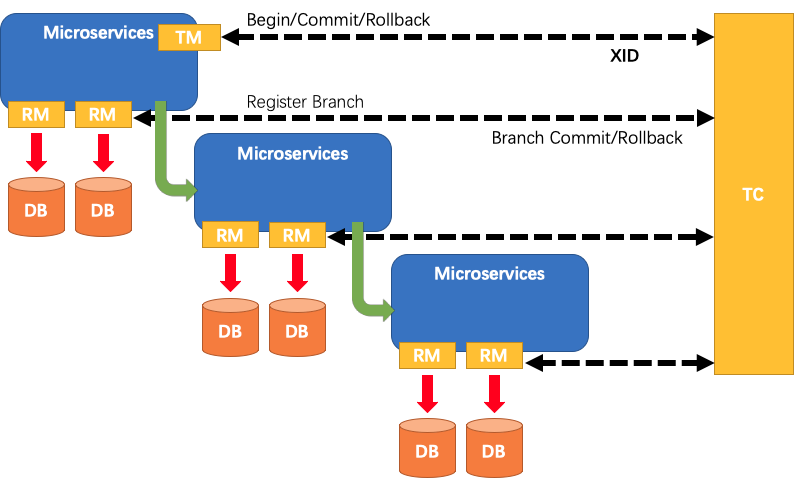A distributed transaction solution with high performance and ease of use for microservices architecture.
Let's imagine a traditional monolithic application. Its business is built up with 3 modules. They use a single local data source.
Naturally, data consistency will be guaranteed by the local transaction.
Things have changed in microservices architecture. The 3 modules mentioned above are designed to be 3 services on top of 3 different data sources (Pattern: Database per service). Data consistency within every single service is naturally guaranteed by the local transaction.
But how about the whole business logic scope?
Fescar is just a solution to the problem mentioned above.
Firstly, how to define a Distributed Transaction?
We say, a Distributed Transaction is a Global Transaction which is made up with a batch of Branch Transaction, and normally Branch Transaction is just Local Transaction.
There are 3 basic components in Fescar:
- Transaction Coordinator(TC): Maintain status of global and branch transactions, drive the global commit or rollback.
- Transaction Manager(TM): Define the scope of global transaction: begin a global transaction, commit or rollback a global transaction.
- Resource Manager(RM): Manage resources that branch transactions working on, talk to TC for registering branch transactions and reporting status of branch transactions, and drive the branch transaction commit or rollback.
A typical lifecycle of Fescar managed distributed transaction:
- TM asks TC to begin a new global transaction. TC generates an XID representing the global transaction.
- XID is propagated through microservices' invoke chain.
- RM register local transaction as a branch of the corresponding global transaction of XID to TC.
- TM asks TC for committing or rollbacking the corresponding global transaction of XID.
- TC drives all branch transactions under the corresponding global transaction of XID to finish branch committing or rollbacking.
For more details about principle and design, please go to Fescar wiki page.
- TXC: Taobao Transaction Constructor. Alibaba middleware team start this project since 2014 to meet distributed transaction problem caused by application architecture change from monolithic to microservices.
- GTS: Global Transaction Service. TXC as an Aliyun middleware product with new name GTS was published since 2016.
- Fescar: we start the open source project Fescar based on TXC/GTS since 2019 to work closely with the community in the future.
<fescar.version>0.4.0</fescar.version>
<dependency>
<groupId>com.alibaba.fescar</groupId>
<artifactId>fescar-all</artifactId>
<version>${fescar.version}</version>
</dependency>
You can view the full documentation from the wiki: Fescar wiki page.
Please follow the template for reporting any issues.
Contributors are welcomed to join the FEATS project. Please check CONTRIBUTING about how to contribute to this project.
-
Twitter: TBD. Follow along for latest Fescar news on Twitter.
-
Mailing list:
- [email protected] , for dev/user discussion. subscribe, unsubscribe, archive
Dingtalk
- Fescar Ecosystem Entry - A GitHub group
fescar-groupto gather all Fescar relevant projects not appropriate in alibaba group yet - Fescar Samples - Samples for Fescar
- Fescar Docker - Fescar integration with docker
- Fescar K8s - Fescar integration with k8s
- Awesome Fescar - Description of Fescar related projects
- Fescar Website - Fescar official website (In the process of design)
This project exists thanks to all the people who contribute. [Contribute].
Fescar is under the Apache 2.0 license. See the LICENSE file for details.



